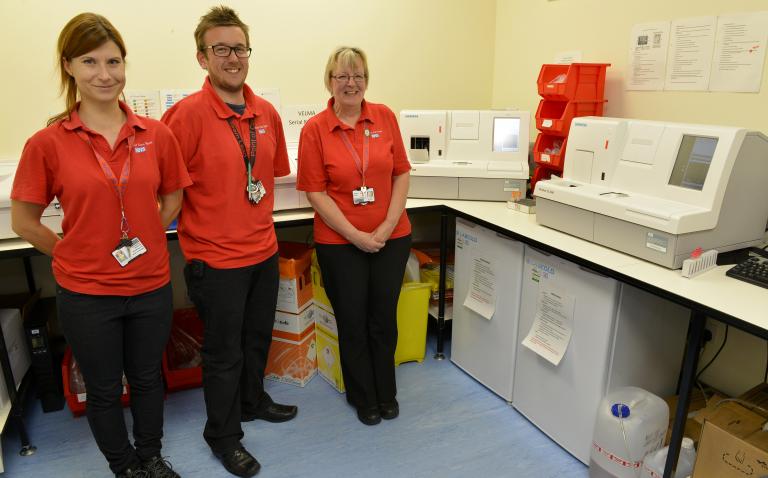Addenbrooke’s Hospital’s Emergency Department (ED), part of Cambridge University Hospitals NHS Foundation Trust, has become the first UK site to install two Stratus® CS200 Acute Care Diagnostic cardiac analysers.
The technology from Siemens Healthcare Diagnostics is enabling rapid diagnosis of cardiovascular disease (CVD) to quickly determine an appropriate treatment plan. This follows the hospital witnessing a steady increase in emergency admissions, with chest pain one of the most common presentations.
“The prevalence of cardiovascular disease means we sought to make it quicker and easier to gain diagnostic results for patients attending ED who may require admission,” states Rhys Tassell, Point of Care Testing Team Lead at Cambridge University Hospitals NHS Foundation Trust. “By housing two Stratus CS200 analysers within the Emergency Department, clinicians are able to quickly gain results and formulate a decision as to whether a patient should be discharged or will need a bed. Furthermore it significantly reduces patient anxiety as faster results lead to less time spent in hospital and a reduction in the stress of waiting for a diagnosis.”
The Acute Care Diagnostic analysers are supporting the Trust to meet the NHS maximum four-hour wait A&E guidelines. Previously, when samples were sent to the Central Laboratory, it could take up to three hours from test to reporting results. With the new systems in place, the department can undertake testing in the Emergency Department and rapidly gain results in approximately 14 minutes, therefore taking around 35 minutes for the whole cycle from testing to the delivery of results.
The Stratus CS200 analyser features a touchscreen interface, enabling easy navigation of menus as well as a barcode reader to eliminate the need for manual entry. The system also allows results to be reported in dual units, for easy interpretation by clinicians. It delivers a robust cardiac assay menu, including guideline acceptable sensitive Troponin I, meeting European Society of Cardiology and American College of Cardiology Joint Committee recommendations of ≤10% CV at the 99th percentile of normal population.
Other assays include D-Dimer, an important test performed in patients with suspected thrombotic disorders and BhCG, which is used as an early pregnancy detection marker, to guide diagnostic testing decisions. CardioPhase® hsCRP is available for assessing risk of future cardiovascular disease and NT-proBNP which aids in diagnosis and assessment of severity of congestive heart failure and used for risk stratification of patients with acute coronary syndrome and heart failure. Myoglobin is available for patients in need of early diagnosis of myocardial infarction and CKMB Mass as an alternative to Troponin I.
Afia Boamah, POC Product Manager at Siemens Healthcare Diagnostics comments, “Siemens has a strong relationship with Addenbrooke’s Hospital and was delighted to pilot the new Stratus CS200 systems in the Emergency Department to advance the site’s point of care offering. We worked closely with the team and responded to feedback to ensure the technology met their needs, in turn improving patient pathways and outcomes. In the future, we look forward to extending the success Addenbrooke’s has experienced in the diagnosis of CVD patients to other areas.”
Siemens Health care is one of the world’s largest suppliers to the healthcare industry and a trendsetter in medical imaging, laboratory diagnostics, medical information technology and hearing aids. Siemens offers its customers products and solutions for the entire range of patient care from a single source – from prevention and early detection to diagnosis, and on to treatment and aftercare. By optimising clinical workflows for the most common diseases, Siemens also makes healthcare faster, better and more cost effective. Siemens Healthcare employs some 52,000 employees worldwide and operates around the world www.siemens.co.uk/healthcare.









